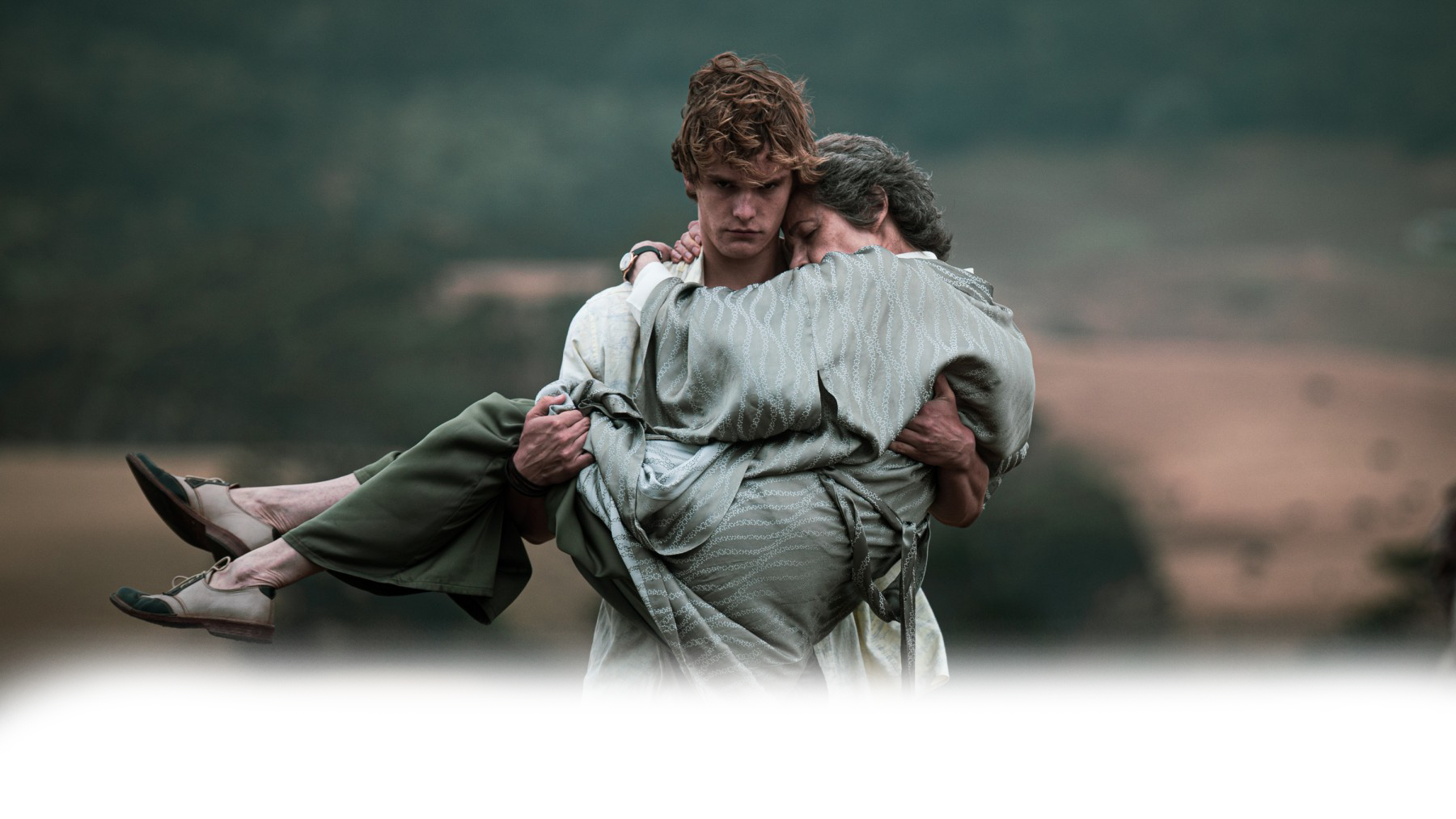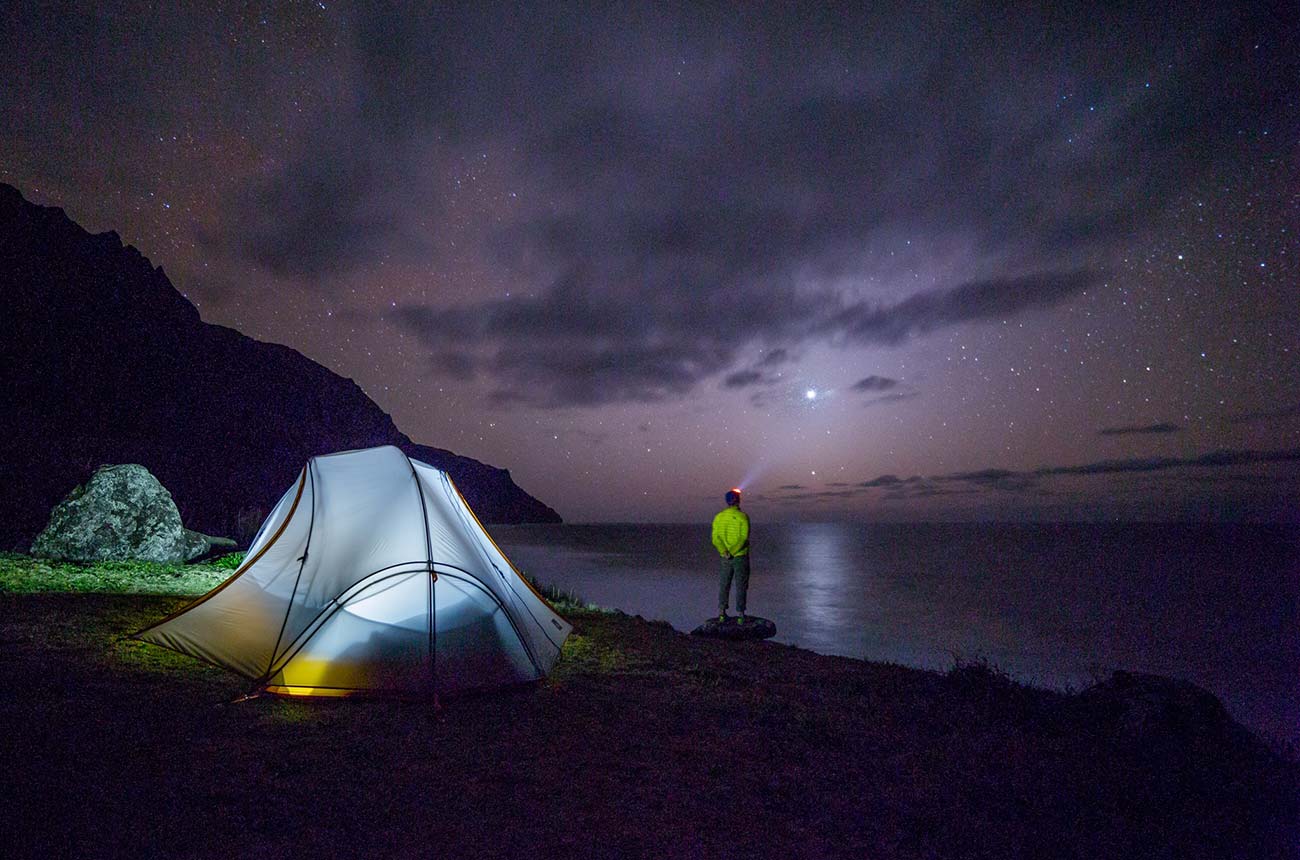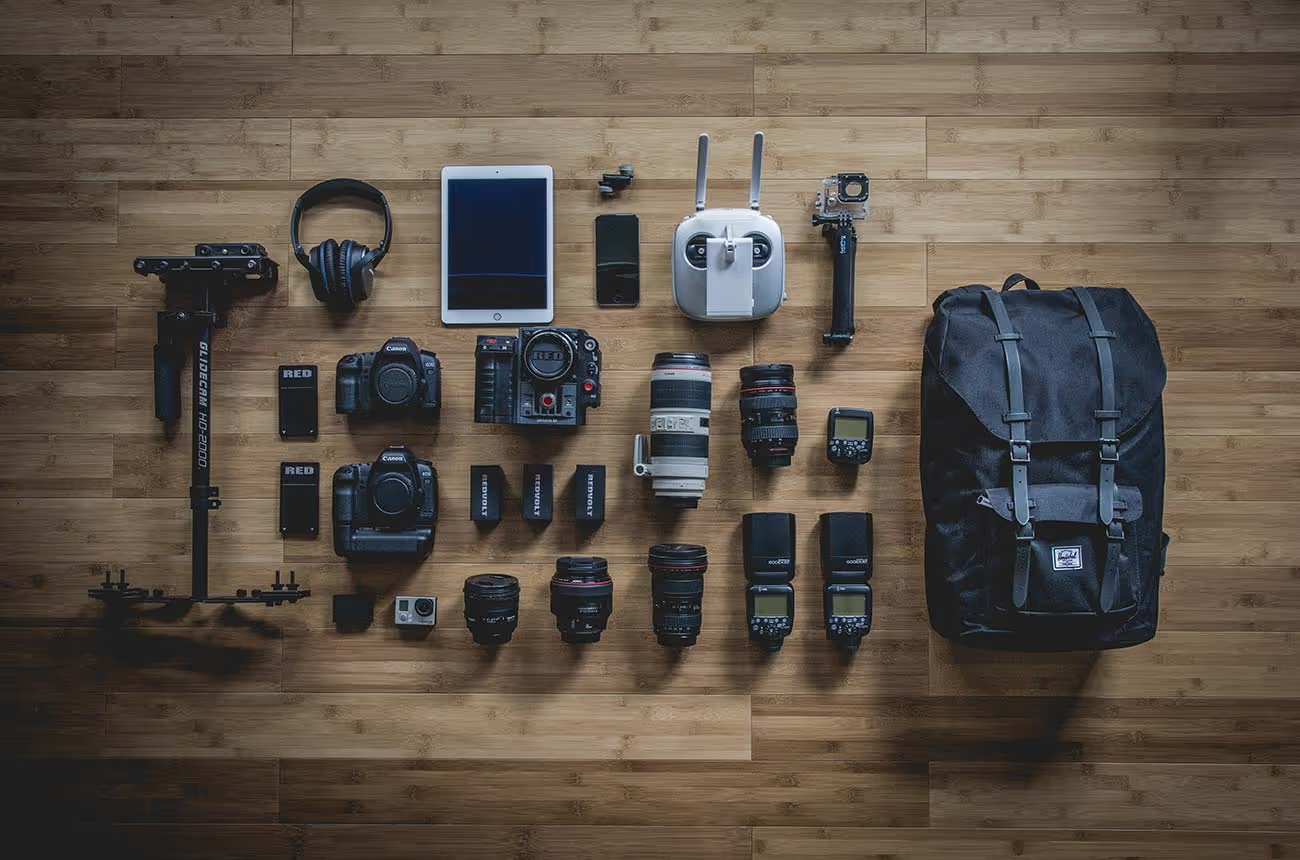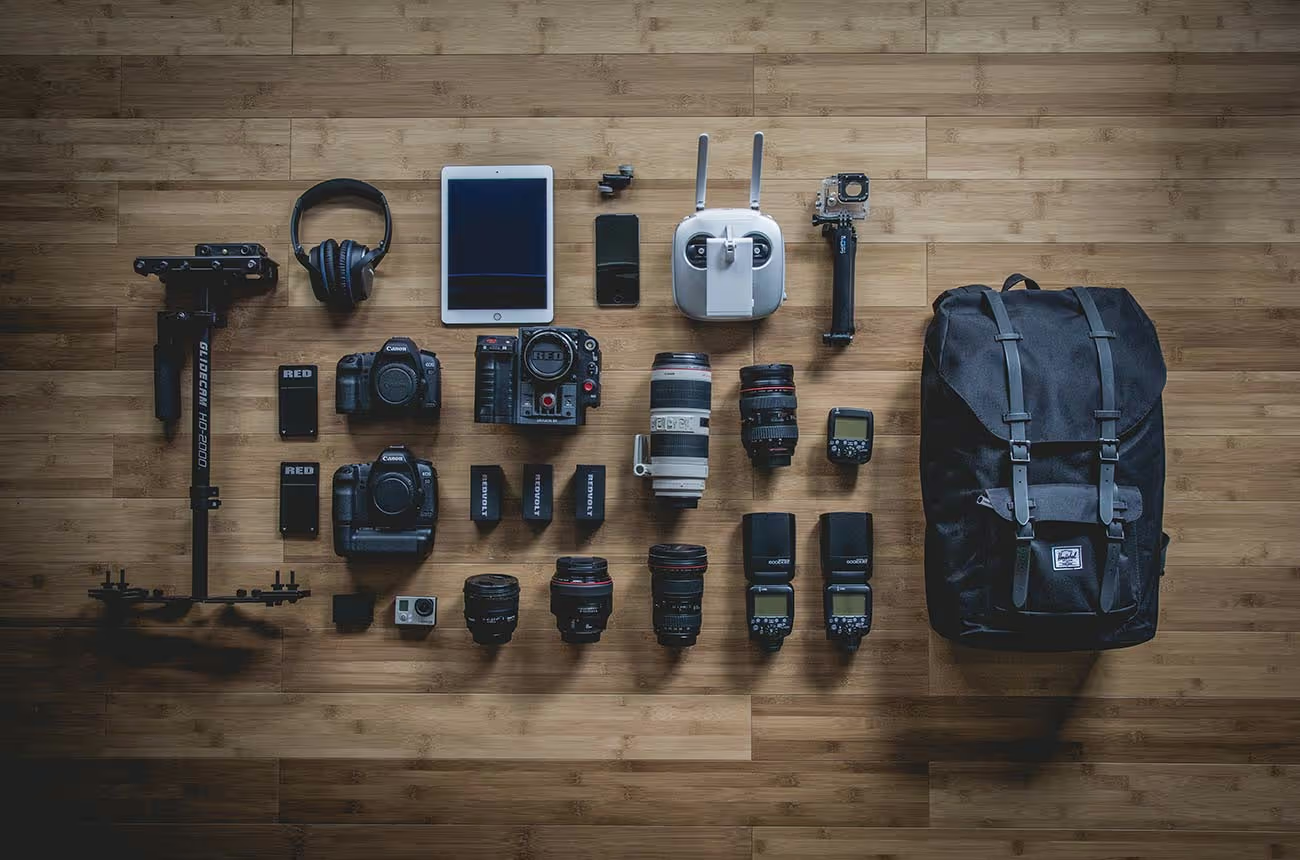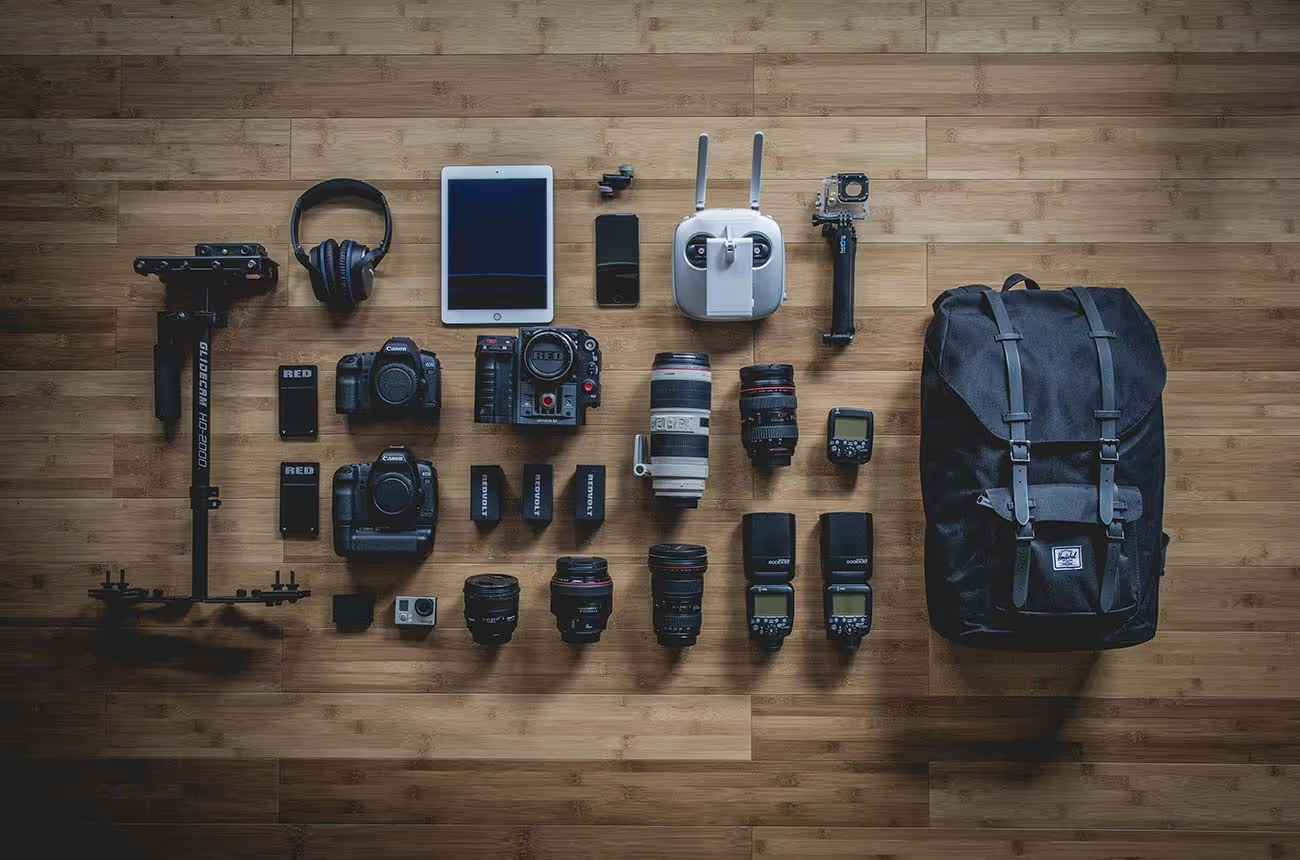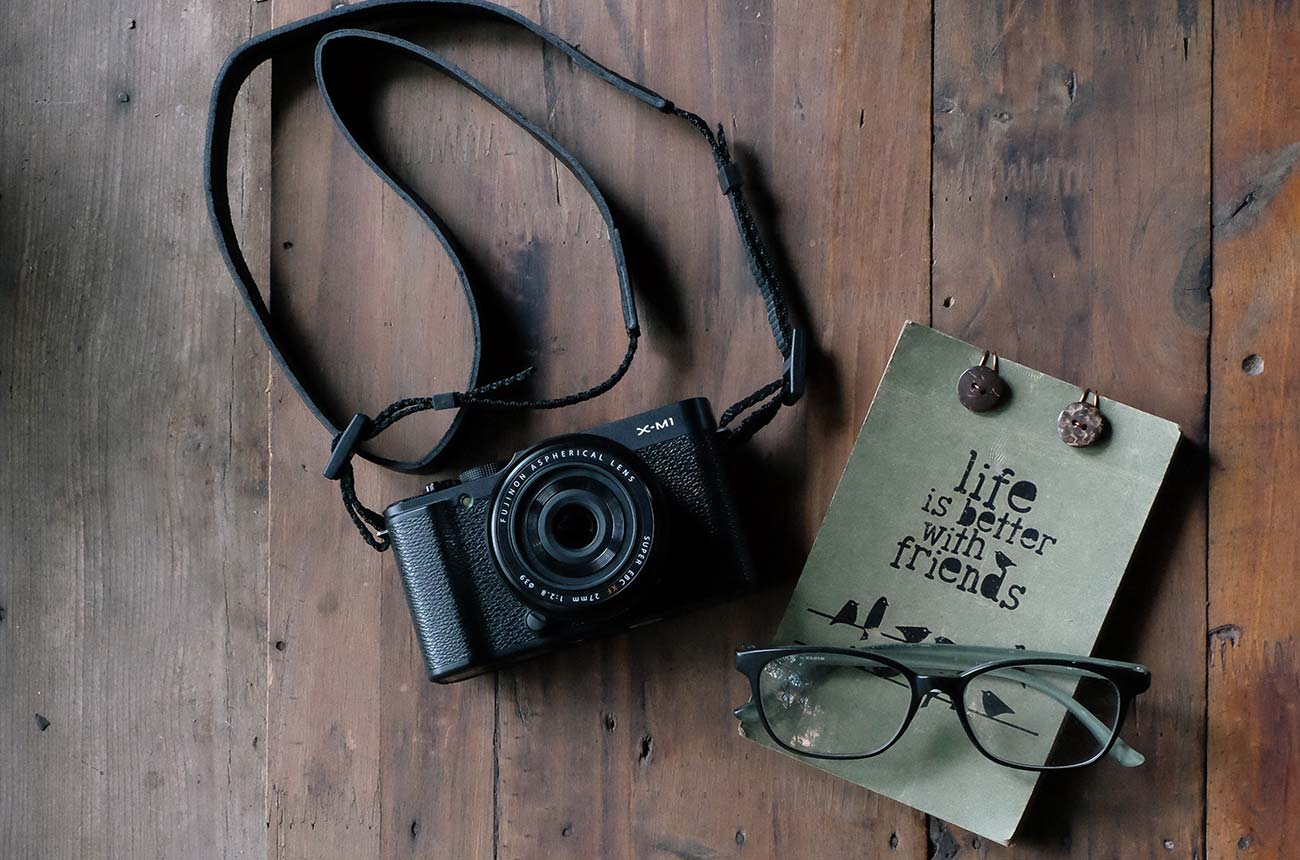
Continuity Guy - Guy Strachan and the Art of Continuity
People get into script supervising (also known as “continuity”) for a variety of reasons. Some may simply have a natural aptitude for the role, while others look on it as a chance to learn as much about the craft of filmmaking as they possibly can. Guy Strachan is a script supervisor for the latter reason. In this regard, there is no better boot camp than continuity. An exceptionally strenuous role, it is considered one of the most difficult in the industry and extends into many areas of production.
“I have never asked any other continuity people what they get out of it. I have no idea why on earth you would CHOOSE to do this job, if you didn’t have an ambition to be doing something else. However, a lot of continuity people have become producers in the industry. Some of the line producers that first hired me said, ‘Oh yeah, I used to do continuity.’ So I think maybe that’s symptomatic of the broad-base knowledge that it does give you. You get to know the ins and outs of both the film set and production because, essentially, you’re with the production.”
Guy has been a script supervisor for close to four years, and has an incredible passion for the art of film. However, this has not always been the case. “I did a BSc in chemistry and then part way through that I picked up just one film paper and decided, this… is what I want to be doing.”
LIFE BEFORE CONTINUITY
Guy admits that there wasn’t a great deal of connection between chemistry and the world of film. “I didn’t have any arts subjects at high school, so I just didn’t really know about it. I grew up at the Mount (Maunganui), went to high school in Hamilton and then in Auckland. I went overseas for a year straight after high school, and then went to Otago and spent five years there…” Was film a random choice? “Kind of… In an undergraduate degree you end up with 60 points to do a paper. I just looked at [the film paper] and that was it. I did a semester and thought, ‘Bugger this’. So I started again and did a B.A.”
It was at the end of this period that Guy embarked on directing his short film, Minefield, which was produced by Ride with the Devil producer Rachel Jean and shot by Ginny Loane. “I got to the end of university and that was eight years of university studies. I was a bit over it. So I directed a short film.”
“Minefield was a story about a war between two elderly retired widows, and… it was all right. I did it in three days. It was based on an idea I had come up with as a student. It started off as a battle between two old women over a marijuana plant, but the marijuana gag wasn’t as strong as the story element. So that kind of got lost somewhere…” Guy laughs.
BIRTH OF A SCRIPT SUPERVISOR
During his Masters degree, Guy worked on a short film that one of his fellow students was directing. During the shoot he had the opportunity of meeting with Melissa Lawrence, daughter of actor Bruno, who was doing continuity on the project. He discussed with her the pros and cons of script supervising and “…decided at that point that I really wanted to direct, and that seemed like a good way of spending [a lot] of time with Directors…”
Guy confesses he had never considered continuity prior to his encounter with Melissa. “Not at all! I just got shown the basics of what to do, then did a bunch of short films. After that, I just put my name in the Data Book and the next day I got a call. The first job I had was probably the hardest. It was quite stressful, but… rewarding. So that’s made it kind of easier in a way… getting through that…”
The first show that Guy was hired for was the TV3 mini-series Doves of War. “It was two cameras, 16 millimetre, shooting seven or eight minutes a day. The director was also one of the camera operators, so there wasn’t a lot of that continuity-director interaction. It was full on! I was just so busy focusing on what was going on in the story… It was a real back-seat kind of role.”
“[In terms of being a director] continuity has given me access to a lot of things I wouldn’t otherwise have had access to in only four years. You hear a lot of discussions going on between directors and DoPs and art directors and production designers. To try and work your way up through the camera department or the sound department will take you years to work your way up. It’s just this ladder you’ve got to climb, essentially. But [doing continuity]… when you’re on that shoot, you’re right there. It makes you feel like you’re right in the midst of it. It can be massively frustrating because you have NO artistic input, though it depends on the commitment offered. Your job is to watch out for mistakes and to try and minimize the amount of errors. As such, it’s not ideal but it is still really helpful.”
THE HISTORY OF CONTINUITY
In the early days of film, the majority of ‘silents’ used only single long takes. It was when the legendary pioneer D.W. Griffith introduced the techniques of close-up, mid-shot and the deployment of multiple cameras that things became more complicated, and the script supervisor’s role was born.
There can be more than a hundred continuity errors in any given film, from very minor to major. A glass on the table might be full while the director films from one angle, then empty in a take a shot later. That’s something a script supervisor needs to watch out for, and that ‘cowboy with a wrist watch’ moment is every continuity person’s greatest fear. However, that moment may not be such an unlikely event, as the script supervisor needs to keep an eye on over a dozen things at any given time, and mistakes can sometimes slip through the cracks. The role of script supervisor requires an extremely broad view of the film as a whole, and the chosen person needs the ability to focus on many different areas simultaneously.
GENDER BIAS IN CONTINUITY
The historical term for script supervisor is ‘continuity clerk’ or ‘script girl’, as in the past the position was filled almost exclusively by women. This gender bias has continued largely unchallenged into today’s film industry, with the majority of continuity people still being female.
[Editor: Why is this? Do producers believe women to be more analytical, or in modern parlance, better at the multi-tasking necessary in continuity work? Or are there other reasons? Are males more attracted to dealing with more mechanical equipment rather than pen and paper, or perhaps to being in positions of greater authority?]
When asked about whether the stigma attached to script supervising has ever affected him, Guy is slow to answer. “I don’t know, eh. I am only ever the one person doing that job on a film. The first couple of jobs I did, people would always comment on it. On one of the first short films I did, I asked a loader whether they had a preference for the slate number. They just said, “Oh, I normally just ask the continuity lady!” So I was like… Oh, right… Okay…
But now… No, I don’t even think about it. I’ve been doing it for three or four years now, so everyone knows me.”
But does this mean he has never been the butt of jokes? “Oh yeah, people give me shit about it! But not in a bad way… It’s all professional. It’s a weird job because you’re never, certainly not to your own knowledge, measured up against other people. You just sort out the dynamics of different relationships… It’s you and actors, you and the director, the camera… Doesn’t really matter if you’re a guy or a girl. It’s all about your personality.”
One of the earliest male script supervisors was Robert Gray, whose first film was the much-vaunted 1956 John Ford western, The Searchers, starring John Wayne. It was shot in the forbidding environment of Arizona’s Monument Valley and, as it was going to be a stressful and rigorous shoot, Director Ford was concerned about bringing a female continuity person. Gray, a left-wing actor, was happy for the work, as it was the era of Senator Joseph McCarthy’s communist ‘witch hunts’ and blacklisting.
Gray was teased by the crew daily and was often dismissively referred to as ‘the script girl’. However, he hung in, and went on to work for such famed Hollywood directors as William Wyler and George Stevens on classic pictures like The Diary of Anne Frank, Hush, Hush Sweet Charlotte, and the Betty Davis/Joan Crawford vehicle Whatever Happened to Baby Jane?.
BUT WHAT EXACTLY IS A SCRIPT SUPERVISOR?
The position of script supervisor or continuity is an oft-misunderstood one. In fact, a surprising number of people do not even know what the job entails, as it is so multifaceted that many of its aspects are not immediately obvious, nor necessarily appreciated in the manner of, say, the position of first assistant director or director of photography.
Traditionally, a script supervisor is described as ‘the member of a film crew responsible for maintaining the film’s internal continuity, and for marking the production unit’s daily progress in shooting the film’s screenplay’, but it inevitably extends into many other aspects of a film’s production. The script supervisor is considered the editor and writer’s representative on set, as well as being the aide-de-camp to the director and DoP. It is the script supervisor’s role, in its most basic and fundamental form, to make sure that, at the end of the day, the footage can be cut together. In this regard, they back up every department to ensure that errors do not occur.
“I find the easiest way to explain continuity,” declares Guy “is to say that my job is to make sure a glass has the same amount of wine in it with each take. But if that’s all there really was to your job it would be unbearable. Kath Thomas, one of the really well-known continuity people in New Zealand, describes the job as the ‘editor’s representative on set’. Which is not a bad way to think about it really… But it depends on which director you’re working with. Some will be really specific about how the coverage will cut together. A lot of directors will be really focused on performance, and they’ll shoot from every angle and just cover the crap out of a scene, with the idea that it’s all just somehow going to come together in post… And there are others that will be really focused on how it’s going to cut together and really shoot their scenes.”
Each day, script supervisors file reports and photographic records of the previous day’s shoot and prepare all the paperwork for the post-production, as well as checking continuity requirements for each scene about to be shot. During filming, they closely monitor the script to check that no dialogue has been overlooked, and cue actors when required. According to Guy, “Sometimes I find it really difficult to bite my tongue when it comes to performance! Though it differs from director to director. Some have a really open style… and they’re quite happy for me turn around and go, ‘I don’t think you got that’ or ‘That was a shit performance for that line. I think you need to do it again.’ Of course, some actors are quite unreceptive to [those kinds of comments].”
“I find [it] quite difficult… being bound by a job description that is essentially limited to making sure that things are the SAME or that things measure up to how they were before, instead of being able to push the envelope and offer something new or make things… better.”
PRE-PRODUCTION & TIMINGS
During pre-production the script supervisor checks the script for errors and inconsistencies, prepares the running times and breaks the script down to production requirements. “Timings are a pain the ass,” bemoans Guy. “I’m better at it than I was when I started… but I still get them horrendously wrong! I’ve just been through an example where the timings for the first episode of a show… The commercial half-hour screening length is 22 minutes. My timings came back for that episode at just over 30 minutes! I went into the production office and the writer and producer told me I had it COMPLETELY WRONG. They’d done it several times and the length was 23 minutes. So they told me to redo them at that pace.”
“We shot the episode, and it came to 30 minutes. Which is a weird kind of scenario to be in. You’ll never ever get a phone call from a writer or producer saying, ‘Look, sorry… Sorry we knocked all your confidence with the job you did on that. We were wrong.’ Timings are the worst part of the job, but they’re really important. But then, how many times do you go to a read-through and the timing comes out completely differently from yours, and then in filming it comes out differently again… It’s really hard. So much is dependent on the performance.”
RELATIONSHIPS WITH OTHER DEPARTMENTS
The script supervisor liaises with many departments, including costume, make-up and hair, props and lighting. They ensure other departments are aware of the status of each shot and that clappers are marked correctly. When multiple cameras are employed they ensure that each camera’s output is accurately identified. They confirm the director’s preferences and note these down for post-production. They even assist sound mixers in making notes of any additional noises or of any wild tracks or voice-overs. Script supervisors will re-type scripts to reflect any major changes and mark scripts with slate numbers and other related or relevant details.
“Sometimes there are so many things to do… especially on shows like Diplomatic Immunity, where we are shooting seven or eight minutes a day and scenes are three minutes long. Five actors in a three-minute long scene! Nobody is going to be keeping an eye on whether everything’s coming out right, that the dialogue’s all right, whether they’re doing the right accents. On top of that, making sure there is continuity. That’s when you really rely on other people you’re working with; so, if you can have a really good relationship with, say, the on-set art director, standby props, makeup, and wardrobe then they’ll all be supporting your role as well.”
RELATIONSHIP WITH THE DIRECTOR
“Some days continuity is great. I love being in amongst it. Like the show I’m working on at the moment… It’s fun. That’s part of what it’s all about as well. I never have clashes, ‘cause at the end of the day my role is to support the director in every way I can. There’s always, I find, a bit of a teething period with directors, whereby I’m trying to figure out how I can fit into their style. Some directors, like one I have worked with who has an editing background… Now, with someone like that, there is very little I have to offer him in terms of whether what he is shooting is going to cut together. He knows very well what’s going to cut together, but there are other elements. There are things I can offer him, in terms of what’s happening on screen, or what’s happening with the performance or how this or that fits into the story.”
PLUSES AND MINUSES ON THE PATH TO DIRECTING
But does continuity work stand in the way of becoming a director? “Absolutely it does. I am at the point just now where I am starting to be offered work. This is the first time I am starting to be called, instead of having to chase all the jobs myself. But at the same time you don’t get a chance to concentrate on directing. In my case, I’ve got a young baby and a partner, and we’re a one-income household, so we’re trying to balance those things. Although in some ways it is easy to get caught up in doing Continuity, for me it is only need to work and support my family that stands in the way. Not the role itself.”
“I am lucky in a way, because I am starting to be offered more and more work and I very rarely have the luxury of turning down jobs. The juggling that you have to do to both work and develop my own ideas whilst providing for my family is not easy act to keep going, but it is a something many successful people have to cope with and I am doing my best to ensure that both my current and future careers continue to develop. Making a short film was a path I invested a lot of time and effort into and I raised the funds to shoot a short film on 35 millimetre. It was a really great experience, but it’s also a very difficult path to go through to get a feature made.”
“Whenever I go overseas I still fill in the space for ‘Occupation’ with ‘Filmmaker’. I have to remind myself that I AM a filmmaker, and remind myself that continuity isn’t what I originally wanted to do. However, though my goal is ultimately not that of being a script supervisor, I still have a great respect for the role. I feel that continuity has given me new opportunities to learn about the craft from a broad range of directors, which is why I became a script supervisor in the first place.”
“Basically drama is what I really love. Obviously, I enjoy drama in all mediums and have a deep passion for visual storytelling. With television drama, which is what I have the most experience in, it’s a really fun environment… and there is a lot you can do… and visually you can tell a huge amount of story. So that’s something I wouldn’t mind attempting to direct in future. What you’re doing is shooting actors and shooting dialogue, and visual storytelling is nothing more than that. And it’s a real world out there too… There are some really successful people who would argue television is a great stepping stone.”
